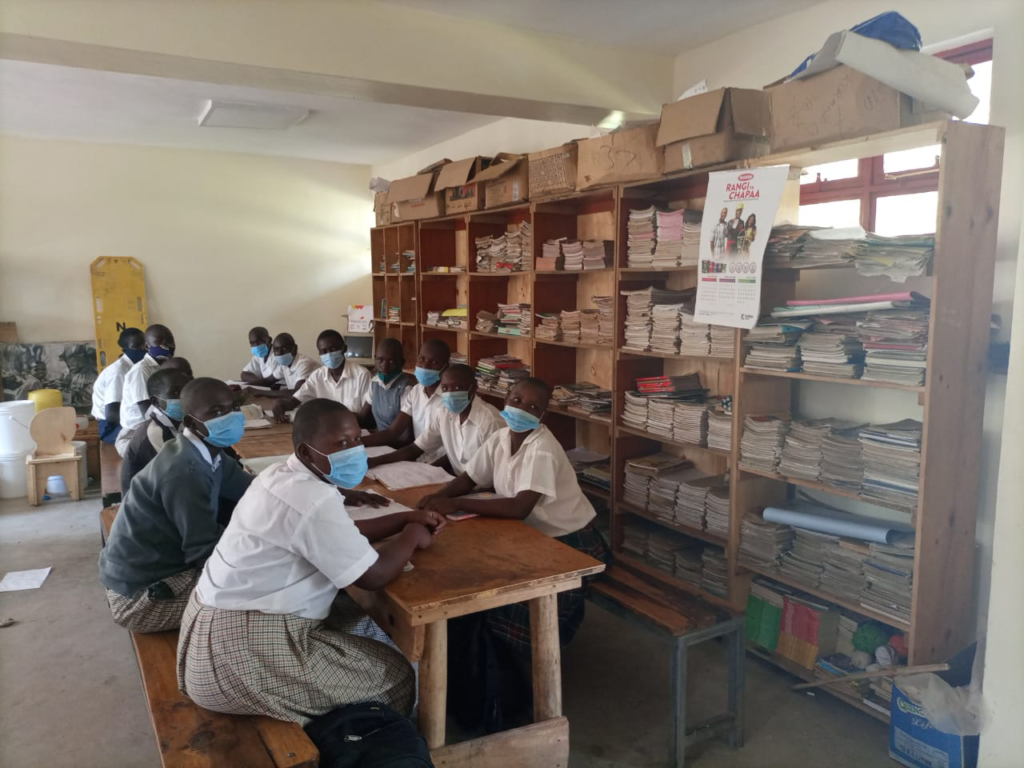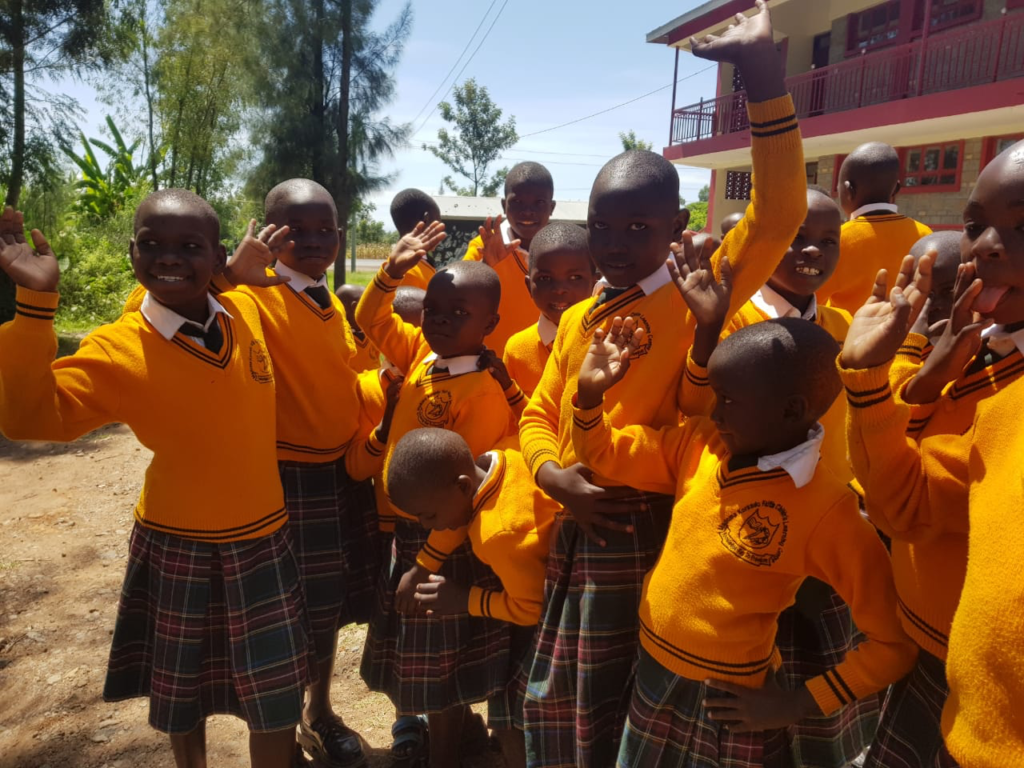
2021 at the Korando Center
2021 has proven to be another eventful year for our friends at Korando Education Center. While in the shadow of uncertainties caused by COVID-19, Kenyan education changes and food supply uncertainties, those at Korando Education Center have continued to thrive. Dolfine currently has 87 children living at the Center and 213 children being educated at the school. Although Ripple Effect Project and Korando Education Center work hand-in-hand to create a budget for the needs of each new year, many emergencies arise throughout the year. We would like to highlight some of the challenges our friends have had to work through over this past year.
Food Supply Constraints
Changes in weather patterns have caused uncertainty in the growing season for many years now. Often the rainy season is too wet causing flooding, while the dry season is too dry causing drought. It is a vicious cycle that does not allow for a beneficial growing season. With this in mind, Dolfine has often procured food from neighboring Uganda to make sure that she has enough for the Korando Community. Prior to COVID, Dolfine would hire a truck and security to go to Uganda to get the food. At the beginning of COVID the system was changed and trucks of food from Uganda would deliver food directly to Korando.
Earlier this year, Uganda began experiencing an increase in violence and unrest. Due to the unrest, the once reliable source of food became untrustworthy. We were able to send urgently needed money to Dolfine so that she could get enough food to keep the community fed for a longer period of time with the hopes of being able to ride out this time of uncertainty.
Education
In 2017 the Kenyan government launched the Competence Based Curriculum with the goal to be fully in place by 2023. The CBC’s focus is to provide the students in pre-school through high school with skills and knowledge that can be applied to real life situations, as opposed to learning just to pass a test. This program has created many challenges throughout Kenya, especially for those in rural areas. Although the Education Ministry in Kenya has a plan for the rollout, they often don’t give the schools much warning to prepare. Most recently, the government required the Korando Education Center to spend thousands of dollars on new books for the updated curriculum. In addition, in the coming months many of the teachers at the Center will be obligated to return to college to receive further education on how to teach with the new curriculum. This will put a further strain on the Center in terms of finances and teacher resources.
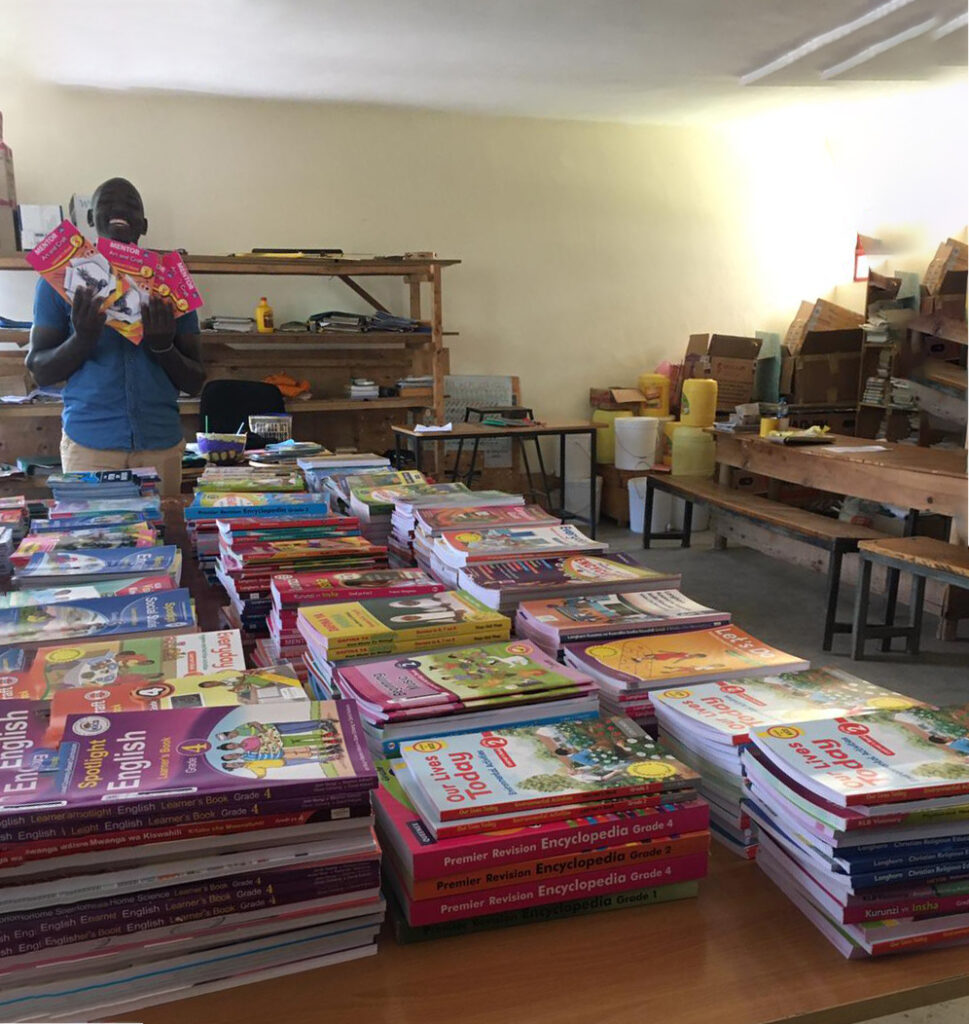
Finally, the government has also mandated monthly proficiency testing for each student in order to evaluate students educational progress using this new curriculum. Nationally, the cost of testing falls to the individual student. At Korando, these tests are purchased by the center, but absorbing this cost has increased the monthly budget.
Building Updates
In 2017 we began working toward the grand goal of raising funds to build a more permanent school structure for the Korando Education Center. We knew this would be a challenge, but one to which we were fiercely committed. In 2019 we broke ground with Phase 1 of the project and the students began learning in the building at the start of 2020. Since then, government inspectors continue to move the goal posts for changes needed to the physical structure. They have required a new floor in the kitchen and the toilet facilities need repairs.
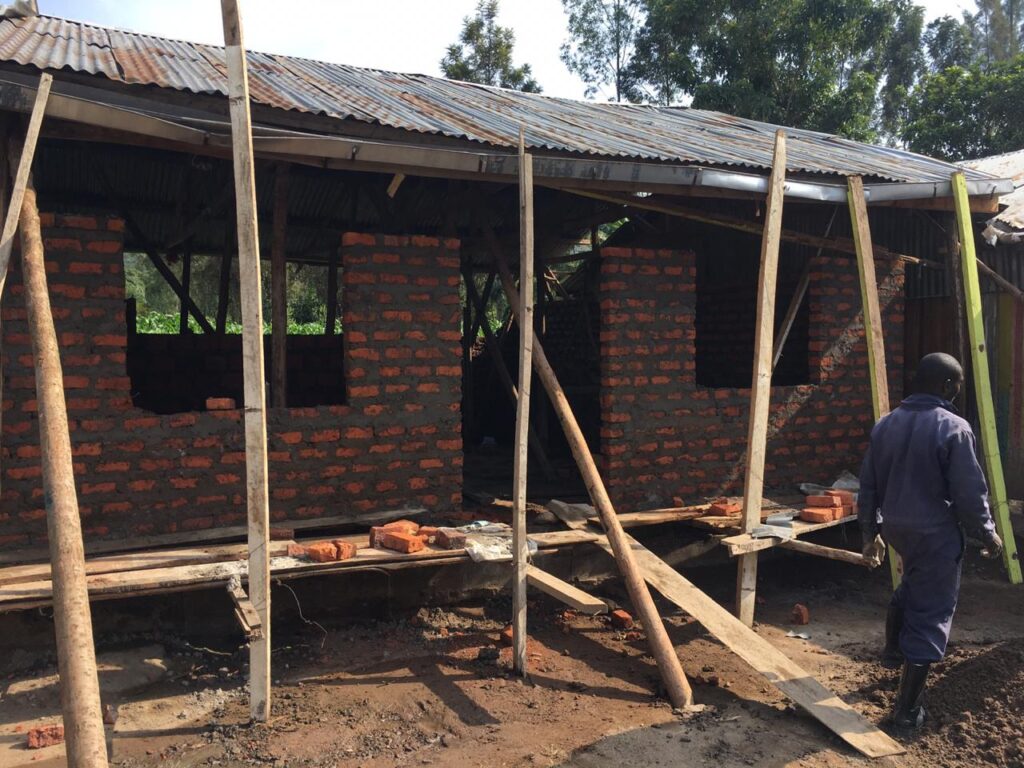
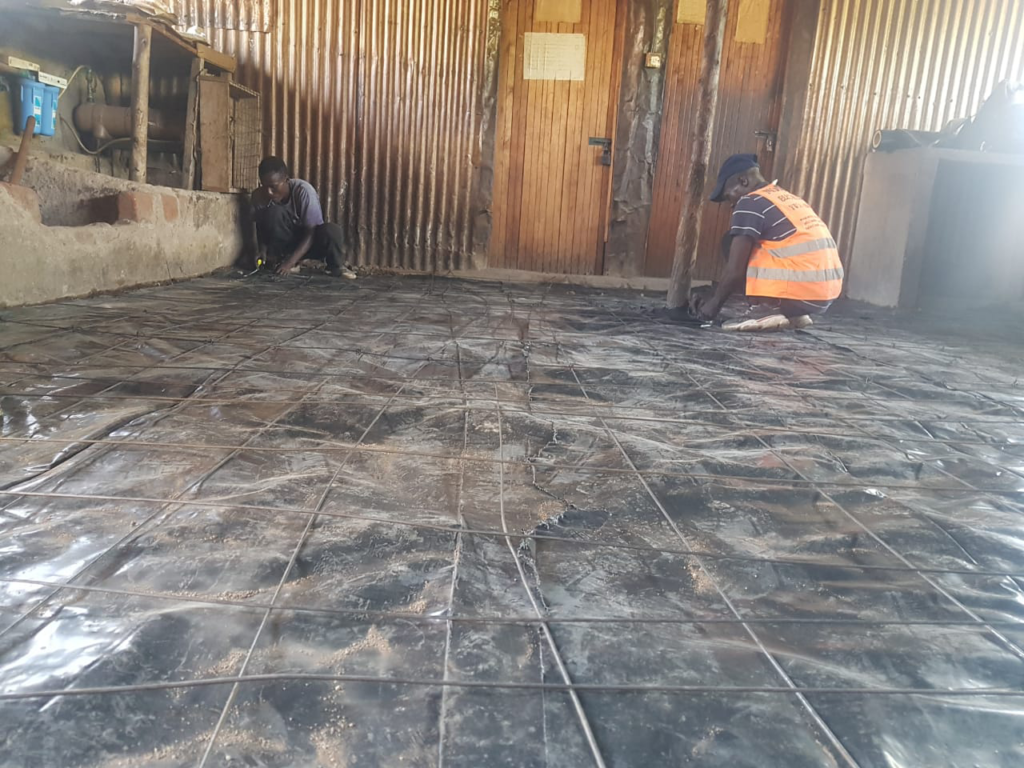
Impacts of COVID-19
At the start of the COVID-19 pandemic, the Kenyan government mandated that all of the children staying at the Center have their own bed to sleep on. This requirement created new challenges. While of course this is the ideal, the reality was that there was simply not enough dorm space for each child to have their own bed. The answer to this conundrum was to convert the old unused classrooms made vacant by occupancy of the new school, to dorm space, and this project was completed last spring. In spite of utilizing all available finished space, we are still short classrooms which meet new building codes and one dormitory unit.
At the most recent inspection, government inspectors asked Dolfine and Korando Education Center to have a plan in place and show progress in moving forward with the completion of the school as originally planned by March 2022. In Phase 2, a second structure would be built adjacent to the current school with 6 more rooms mirroring the first structure to give the students the needed space to learn. In light of the growing needs of the Korando Education Center, the Ripple Effect Project Board of Directors is assessing the costs and logistics of proceeding with Phase 2 of the school construction project.
